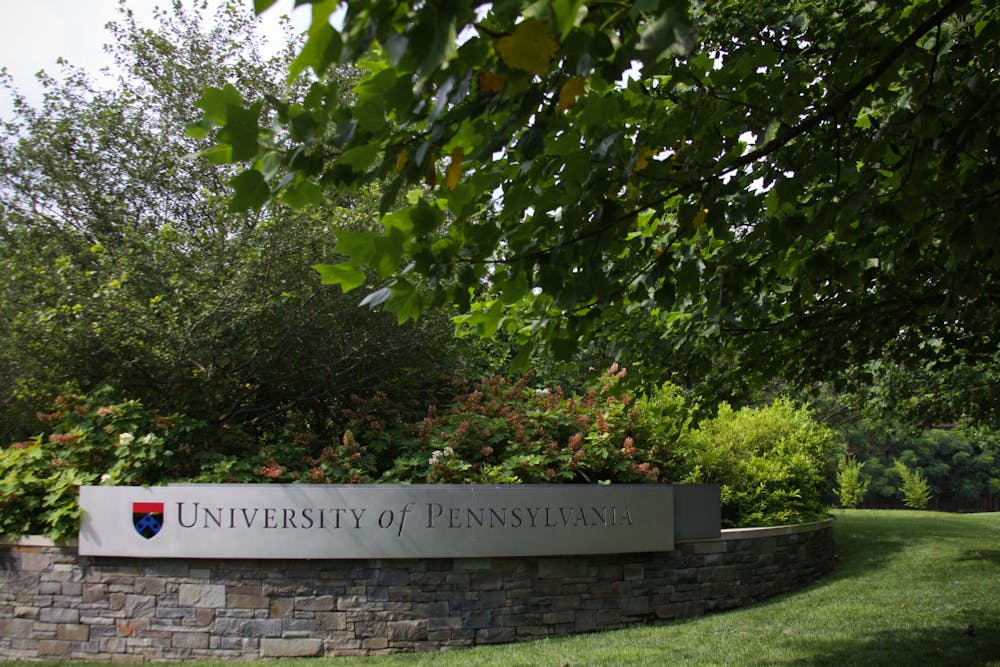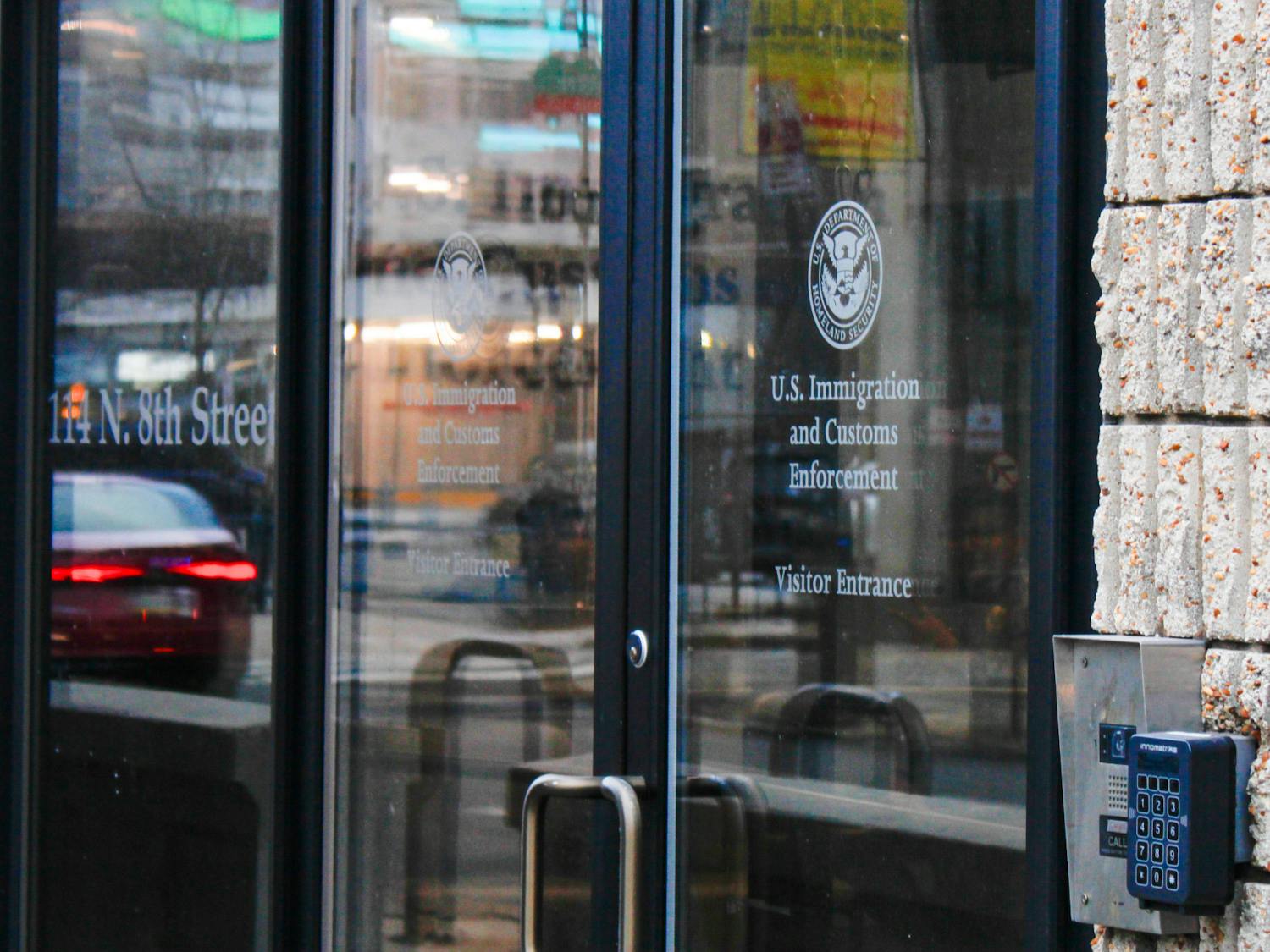Shock is an understatement. Disgust, maybe confusion. Since the Supreme Court announced its verdict to end the use of race as a factor in college admissions, I’ve been pondering deeply. Should I say something? Should I remain silent? As a self-identified wordsmith, words come easily to me. I’m rarely at a loss for what to say; in fact, I’m probably a bit of a blabbermouth. However, this entire situation has perplexed me. For the first time in a long time, I’m tongue tied — literally and figuratively. Mentally, I’ve been in a psychological limbo since the decision was released.
On that day, dreams were shattered. From considering my own admissions process, to reflecting on my time at Penn and the fruit it bore in my life, to the decision’s broader effects — I’m finally ready to speak on this and provide a humanized perspective. I wanted to highlight the perspective of Black students in this process, and the ways this decision might impact them, using my experiences as a lens to learn from.
When the decision was released, I immediately thought back to my 17-year-old self. I wondered what she would think and say if she saw the verdict. Would she think a school like Penn is possible for her? Would she still have submitted an application? Would she have missed out on an educational opportunity that changed the trajectory of her life?
At 17, I believed I could do and be anything. Back then, if you asked me if I wanted to be the President of the United States one day, I would’ve responded with a resounding yes. Sometimes I look back on those days and reminisce on a confidence I didn’t fully understand. Every night, I would look at my vision board, and going to a prestigious university was a central goal. Some felt I couldn’t make it: I didn’t go to a feeder high school, my parents weren’t wealthy, I was Black and the daughter of immigrants. To them, I wasn’t special and couldn’t survive the rigorous admissions process.
However, I thought otherwise. That’s the power of self belief. I mustered all the courage and faith a 17-year-old could have and put my best foot forward. Before arriving at Penn, I was student body president, valedictorian, and an award-winning student speaker and leader. I’m saying all of this humbly — but I was qualified, and so were my Black and Latiné peers. Many of my classmates of color were prodigious, almost genius. I was fascinated by them and their talents as well as their vision to positively impact their communities. For students like myself, our education was much bigger than the diploma or the six-figure role we’d land upon leaving. It represented progress: that a better and brighter future was possible.That maybe our hard work could make a difference and open doors for once. For those reasons, elite admissions were worth taking a chance on ourselve, even if the process was notoriously difficult.
After this verdict, the Supreme Court makes that chance seem like a risk that isn’t worth taking for many students of color, particularly those who are Black and Latiné.
My own college admissions story showed me the importance of taking a shot in the dark. Penn changed my life, undoubtedly. I began to see what was possible: a life outside of the confines that my grandparents’ and forefathers lived in. Could I be an entrepreneur and start my own company? Before Penn, that was just a dream. After Penn, it has become my reality. I hit the ground running and started two ventures, one in DEI and the other in mental health tech.
Penn taught me to take risks, stretch myself and operationalize my creativity. Penn taught me to advocate, stand tall in rooms where others might disagree with me, lead when others follow, speak up and be accounted for. Penn taught me that there is power in being the first but not the only: you must open the doors you walk through for others like you to succeed.
Without Penn, I wouldn’t be who I am today. There’s no doubt about that.
That’s what upsets me about this verdict: that students who share my skin color might miss out on the transformative aspects of an elite college educational experience because their identities and generational history aren’t fully accounted for in the admission’s process. As such, I wholeheartedly stand with Judge Ketanji Brown Jackson’s dissent. There is a wealth of data in the form of history, sociology — even psychology — woven into our racial identities. I wish I could wave a magic wand and say that race doesn’t matter, but the numbers say it does. This isn’t an emotional argument but a factual one. There are quantifiable racial disparities in every aspect of our society, from education to healthcare to home ownership. Race is far from invisible. Especially in the case of African Americans, its effects are ongoing and still experienced long after slavery and Jim Crow. In fact, our obsession with making race invisible proves that it still has very tangible and palpable effects.
No one wins when an entire subset of the population loses. Young Black and brown children deserve to be educated in the best institutions of higher education their country has to offer. For some families, such as my own, the Ivy League and its peer institutions are part of the American Dream. It is transformative for us to receive a college education on grounds that, a mere 200 years ago, our ancestors labored and toiled on for free. That is where true progress lies. Why take that away by making an already elusive admissions process even more difficult?
If admission is a crapshoot, why are we obsessed with questioning the deservingness of the Black students who attend these institutions? Does Students for Fair Admissions recognize the racism they perpetuate through their premise for removing one of the last programs that advocated for students like myself to receive a seat at an institution like Penn? You can’t fight discrimination with more discrimination. I recognize that every group has the right to advocate on behalf of themselves and their community. For this, I applaud Students for Fair Admissions. However, did anyone consider empathy in this process?
Empathy is the action of understanding, being aware of, being sensitive to, and vicariously experiencing the feelings, thoughts, and experience of another. These last few weeks, social media has become especially toxic given the amount of hate and misinformation being spread. What we need to do is suspend judgment and objectively look at the construct of race in America. How will this decision affect students of Black and Latiné heritage? How will this decision affect their job placements, access to capital, and a myriad of other economic and social factors? In my eyes, a hard road has just become a lot harder. That is not a win for anyone but a moral failing on our part to recognize and mediate the societal ills of racism and its effects.
In sum, I ask you all to consider your 17-year-old selves, in the same vein I did after the Supreme Court’s decision. Consulting my younger self helped me comprehend the gravity of the decision. What would she think? She would tell me that affirmative action was never the problem. The problem was the fact it even had to exist in the first place.
Surayya Walters is a 2022 Wharton graduate, where she concentrated in management and marketing with a minor in urban education. Currently, she is the founder of iDEIntity, a nonprofit organization bringing DEI to the entrepreneurial ecosystem; and Still Knowing, an innovative venture that bridges the worlds of faith and mental health for youth. Her email is surayya@ideintity.org.









